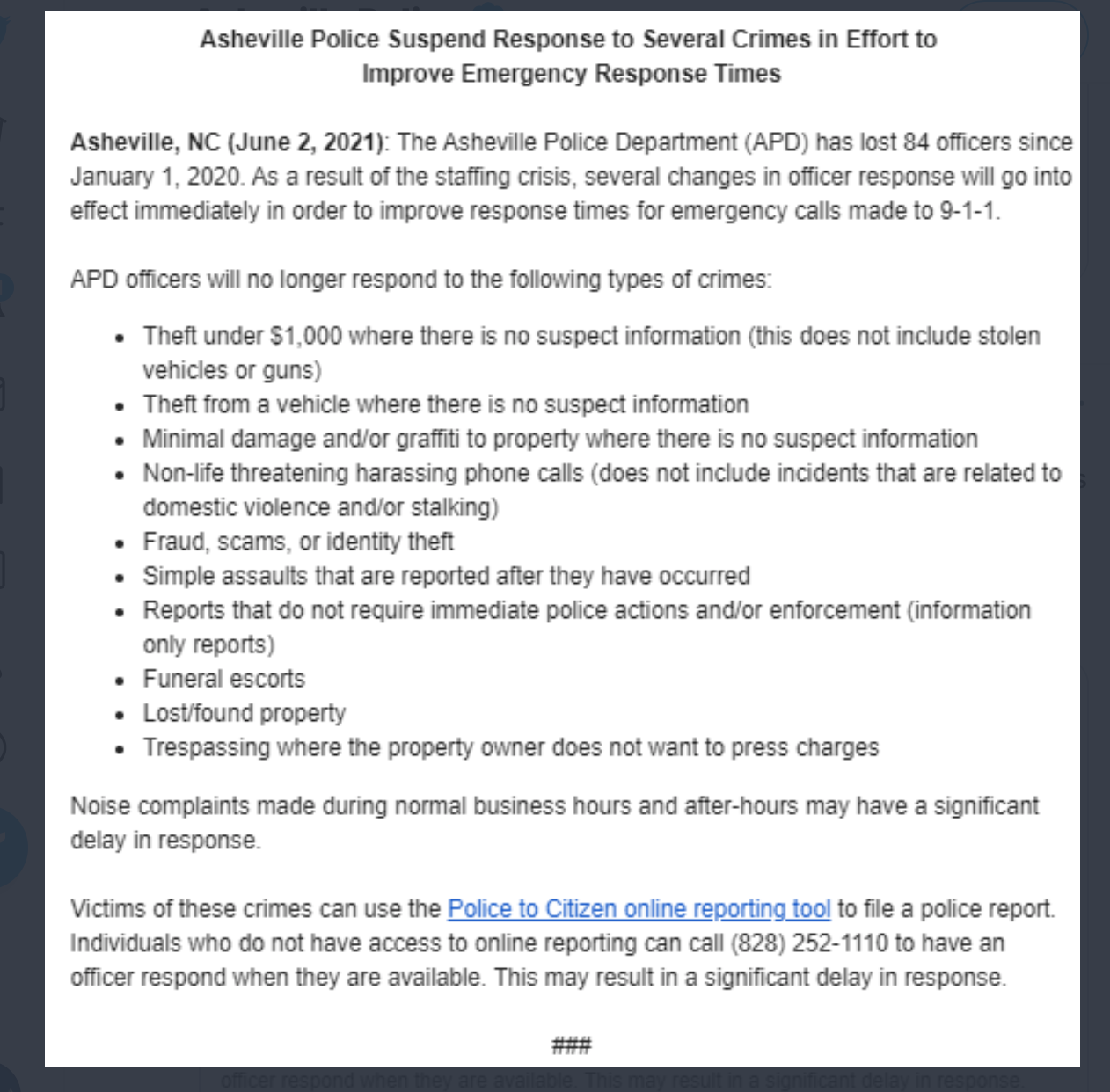More than 80 police officers have left the Asheville police force since January 2020, so a few days ago, the city announced that Asheville residents are on their own when it comes to the crimes and situations described below:
Here’s the problem. The city is opening the door to theft and thieves. We know incentives work. Just ask Gov. Roy Cooper, who has created a vaccination lottery to push more people to take the jab. Just ask those who favor hiking taxes on tobacco, with the goal of pushing people away from cigarettes. They’re counting on us grabbing the carrots they’re dangling, and running away from the sticks they’re wielding.
Residents of San Francisco are learning the reality of incentives. Shoplifting has surged following this:
In 2014, a ballot referendum passed that downgraded the theft of property less than $950 in value from a felony charge to a misdemeanor. In the years since, enforcement of shoplifting charges has waned significantly.
How bad has it gotten? So bad that I’m concerned for a family member who is heading to San Francisco to house sit for a few days right in the heart of the city. She’s right; it’s beautiful. But what about this?
“I’m new to San Francisco,” New York Times journalist Thomas Fuller told a grocery store clerk shortly after moving to the city. “Is it optional to pay for things here?”
It sounds like an absurd thing to ask, but Fuller explains in a new article that he was genuinely forced to wonder what was going on after he witnessed people walk into Walgreens and Safeway, grab stuff, and walk out. He says that the problem has only gotten worse in recent years—and is now literally forcing businesses to close their doors.
“Representatives from Walgreens said that thefts at its stores in San Francisco were four times the chain’s national average, and that it had closed 17 stores, largely because the scale of thefts had made business untenable,” Fuller reports.
Incentives. They work.



